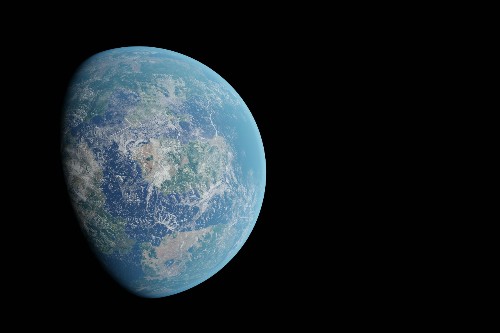
Research has uncovered important new insights into the evolution of oxygen, carbon, and other vital elements over the entire history of Earth – and it could help assess which other planets can develop life, ranging from plants to animals and humans.
The study, published today in Nature Geoscience and led by a researcher at the University of Bristol, reveals for the first time how the build up of carbon-rich rocks has accelerated oxygen production and its release into the atmosphere.
Until now the exact nature of how the atmosphere became oxygen-rich has long eluded scientists and generated conflicting explanations.
As carbon dioxide is steadily emitted by volcanoes, it ends up entering the ocean and forming rocks like limestone.
As global stocks of these rocks build up they can then release their carbon during tectonic processes, including mountain building and metamorphism.
Using this knowledge, the scientists built a unique sophisticated computer model to more accurately chart key changes in the carbon, nutrient and oxygen cycles deep into Earth’s history, over 4 billion years of the planet’s lifetime.
Lead author and biogeochemist Dr Lewis Alcott, Lecturer in Earth Sciences at the University of Bristol, said: “This breakthrough is important and exciting because it may help us understand how planets, other than Earth, have the potential to support intelligent, oxygen-breathing life.
“Previously we didn’t have a clear idea of why oxygen rose from very low concentrations to present-day concentrations, as computer models haven’t previously been able to accurately simulate all the possible feedbacks together. This has puzzled scientists for decades and created different theories.”
The discovery indicates that older planets, originating billions of years ago like Earth, may have better prospects to accumulate enough carbon-rich deposits in their crust, which could facilitate rapid recycling of carbon and nutrients for life.
https://www.bristol.ac.uk/news/2024/april/global-carbon-cycle.html








Recent Comments